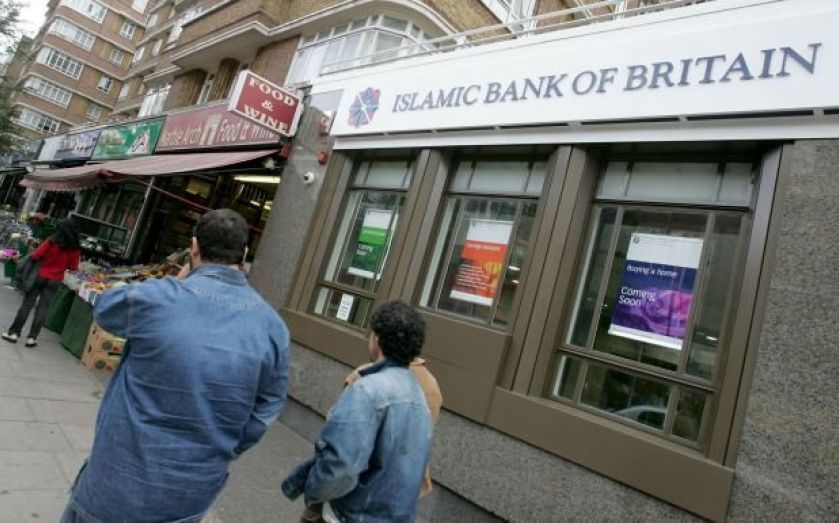Caliphate in the UK: From Hampshire to the city

A few months ago, the word "caliphate" suddenly appeared in headlines in every newspaper, signalling the beginning of the sinister rise of Islamic State (IS), the group currently wreaking terror in the Middle East.
But IS isn't the only caliphate – there are similar groups all over the world. Although it's safe to say the rolling hills of Hampshire may not be where you would expect to find a gathering of the world’s largest…
At the end of August, though, that's where Ahmadiyya Muslim Community (AMC) came together: members flocked in a field near Alton for three days of prayers, food and mingling while pledging allegiance to their caliph Mirza Masroor Ahmad.
Huge tents were erected to house dining rooms, kitchens, prayer halls and bazars. They were so big, one caliphate member proudly remarked that they had to be imported from Denmark.
As well as learning that the Danes need bigger tents than the rest of us, I found out the Ahmadiyya have been coming here for the past 48 years. But my obliviousness was not shared by the rest of the world – every event has been broadcast to 80 million people all over the world via Muslim Television Ahmadiyya. Who knew Hampshire was so famous?
With an estimated ten million members scattered throughout 200 countries, the Ahmadiyya caliphate is currently the largest caliphate in existence. It is also the longest-standing – it was founded by caliph Mizra Ghulam Ahmad in India in 1889 and there have been four caliphs since then.
The word “caliphate” has come to the fore in a negative context recently because of the Islamic State (IS) – a brutal group of Islamic extremists taking over large parts of Syria and northern Iraq, but the AMC describes itself as a “peaceful Islamic movement”. Its founder claimed to be the Messiah prophesised in the Christian, Jewish and Islamic scriptures.
“The caliphate doesn’t have any political ambitions in the way that many people view caliphates like IS and Boko Haram,” explains Usman Khan, a member of the caliphate who works as an IT consultant for a city firm. “We are not like IS – people have the wrong understanding of what a caliphate is.”
So what is a caliphate, exactly? It literally means a group of people who believe in the religious authority of a caliph, or “successor” to the prophet Muhammad. In the case of IS, the notorious Abu Bakr al-Baghdadi is considered to hold this title, whereas in the eyes of the Ahmadiyya community it is Mirza Masroor Ahmad.
Caliphate in the city
Many members of the AMC also hold positions of power in the city, and its peaceful attitude may explain how it has established itself at the heart of the UK's finance sector so easily despite carrying the name “caliphate” and all the negative preconceptions that come with it.
In 2004, caliphate member Ahmad Salam became one of the founding members of the Islamic Bank of Britain (ISS), but when he first started his career in the city 30 years ago he was one of the only Muslims around. "How things have changed," he said.
Now, the ever-growing Ahmadiyya caliphate can be found firmly rooted in all areas of the city: “There are lots of us working in here in London at various levels, from graduate trainees to directors of companies, and we are all over the world in every main European city,” he says.
And while the rest of the banking world hits the booze on a Friday after work, they have their own social occasions going on: “There is a growing appetite among members of the caliphate to come together on a Friday. We now have people meeting for prayers at University College London, Canary Wharf, the West End and most recently Shoreditch,” says Salam.
Salam believes the ease with which the caliphate, and Islamic banking in general, have become such an important part of London’s finance sector is in part because of the city’s adaptability to Islamic needs: “Every day I’m in a position where I encounter transactions I can’t take part in, but anything that’s morally questionable I’m not required to – I think the view now is that if you won’t get involved in a particular transaction for moral reasons, you can be excused.”
In particular, Salam regards the setting up of the ISS as having been a crucial step forward for Islamic banking. This, he explains, was the first western-regulated Islamic bank: “I came up with the idea in 2000 and it took four years to work it out with the FSA. We had to get them to allow us to operate Islamic banking alongside conventional banking.
“It was a great thing for the UK to come up with and we have taken a step in the right direction – there is a real desire in this country to understand what Islamic banking is.”
In June this year the UK government issued an Islamic bond, making it the first country outside the Islamic world to take this step. At the time, chancellor George Osborne hailed it as evidence of the “government’s commitment to become the Western hub of Islamic finance”. The bond attracted ten times the number of orders expected.
“While others in the western world resist change, this government is embracing it: banging the drum for British businesses, seeking out new markets, welcoming overseas investment with open arms,” he wrote in the FT.